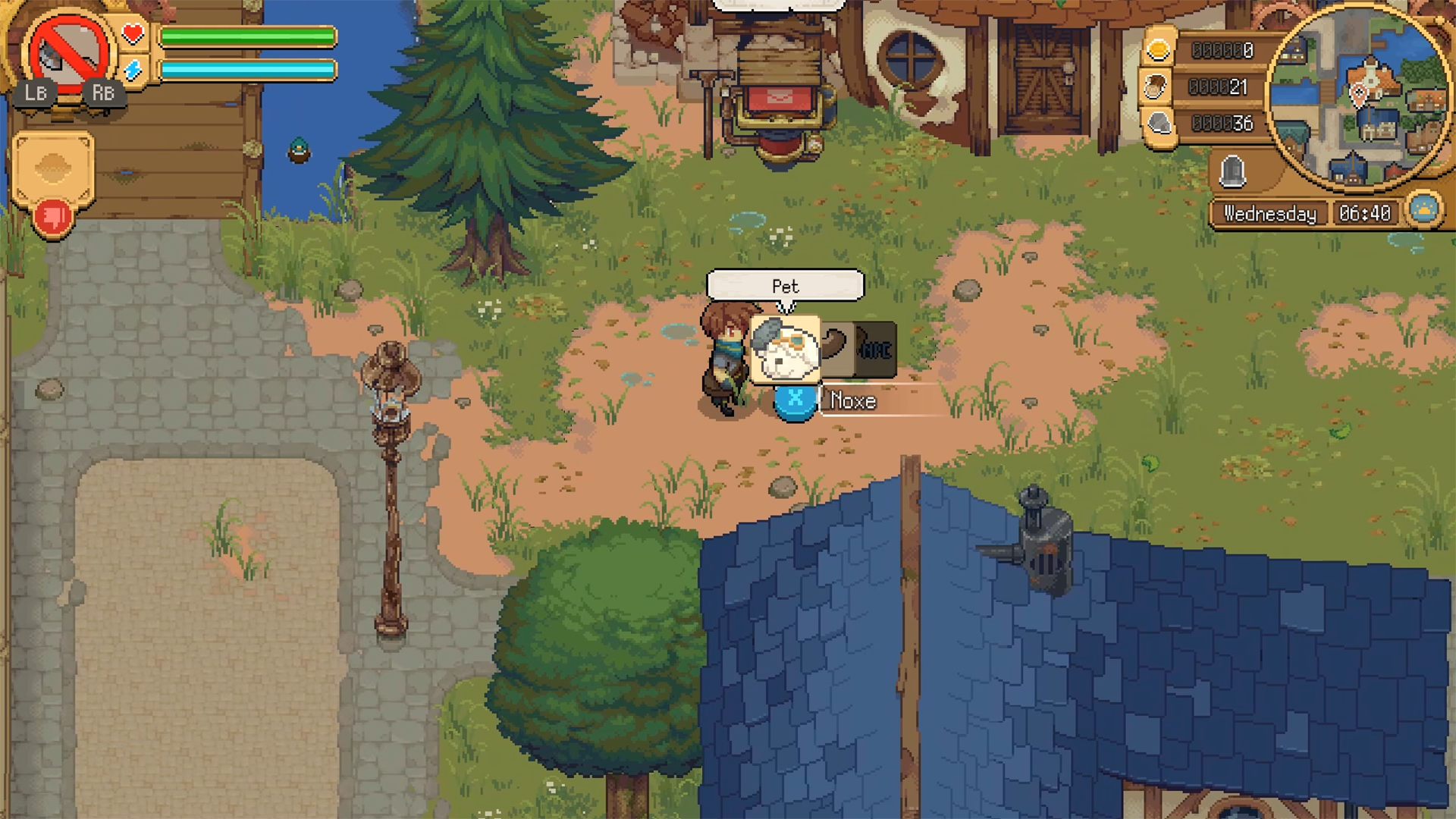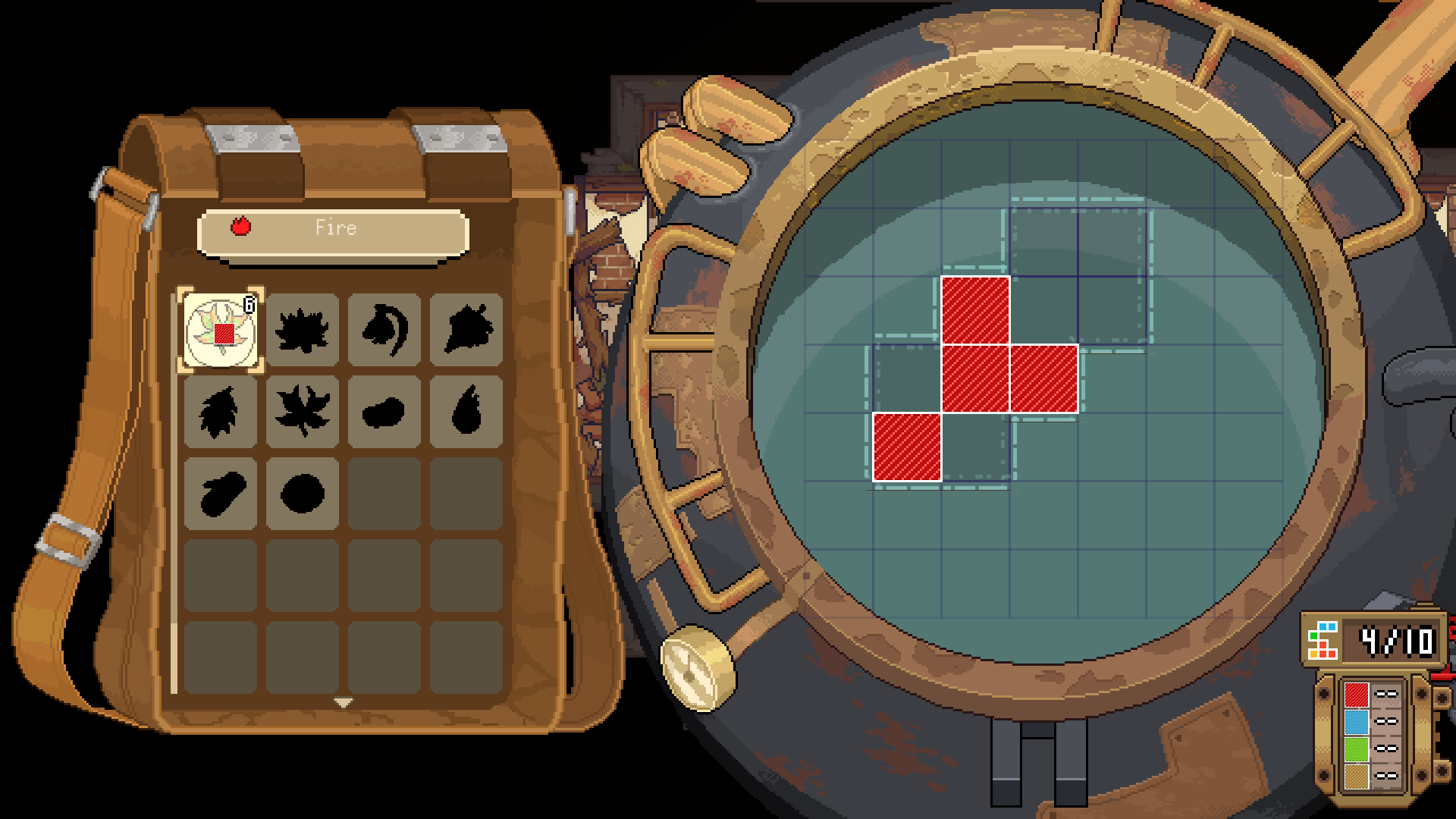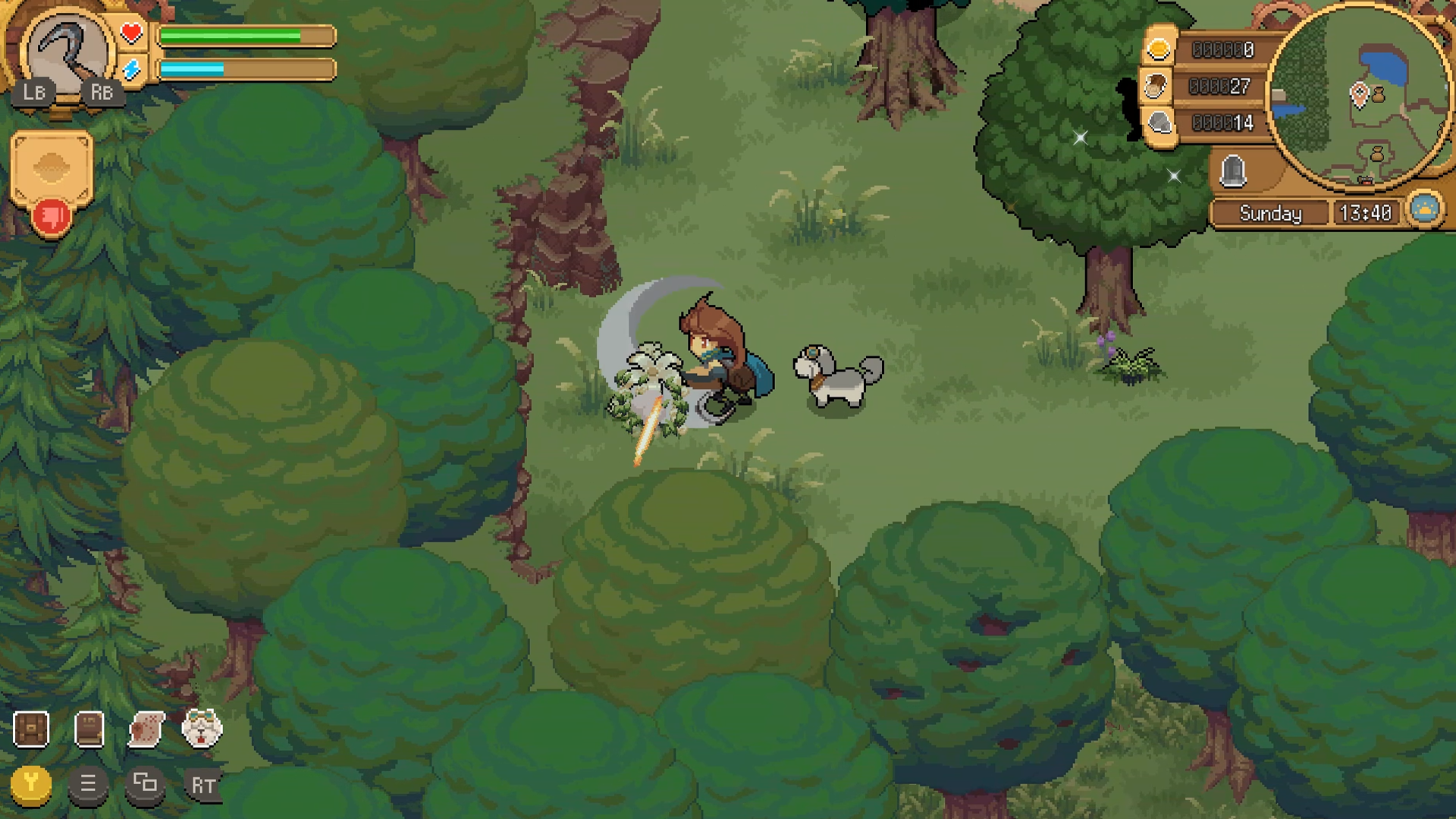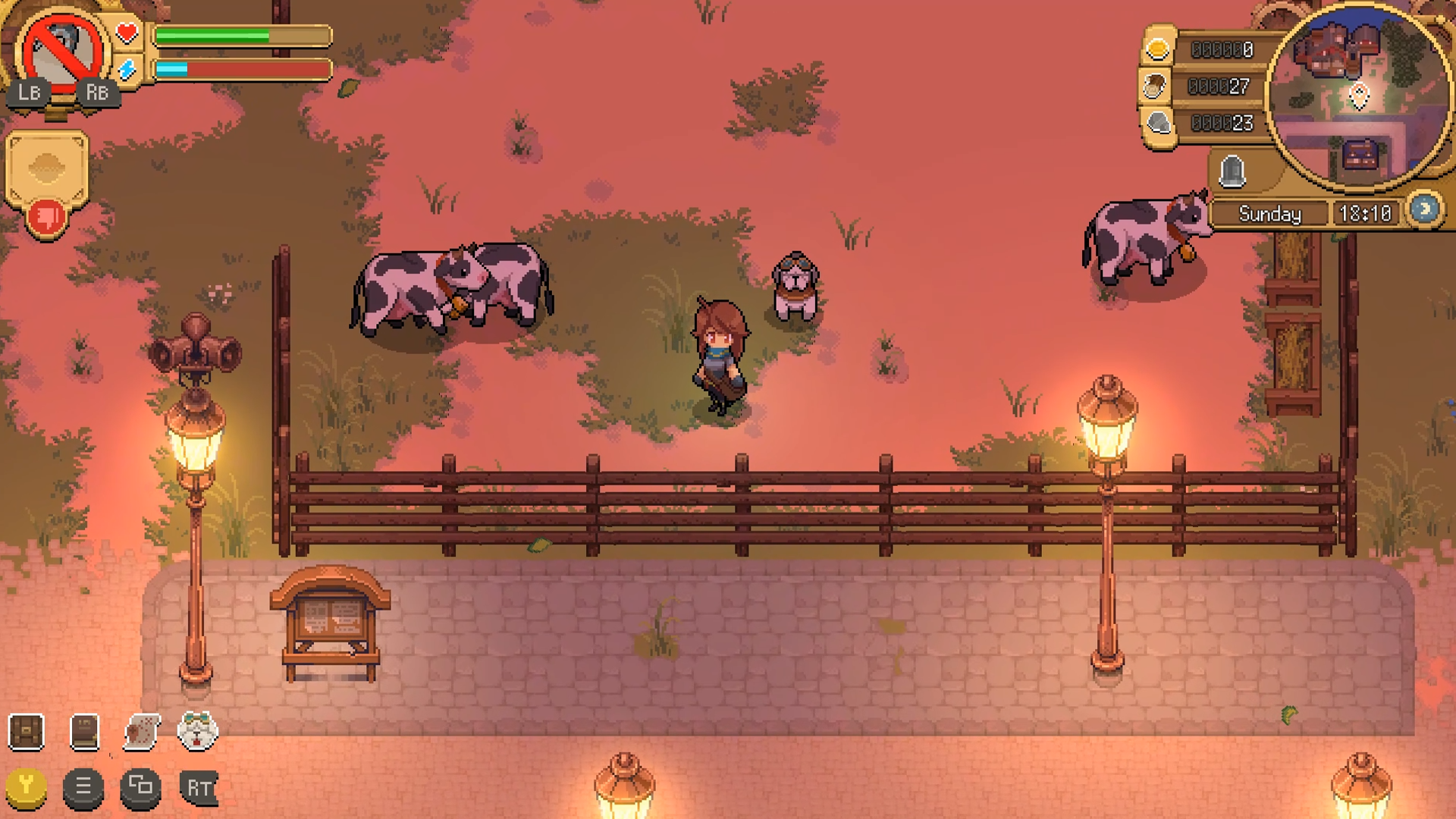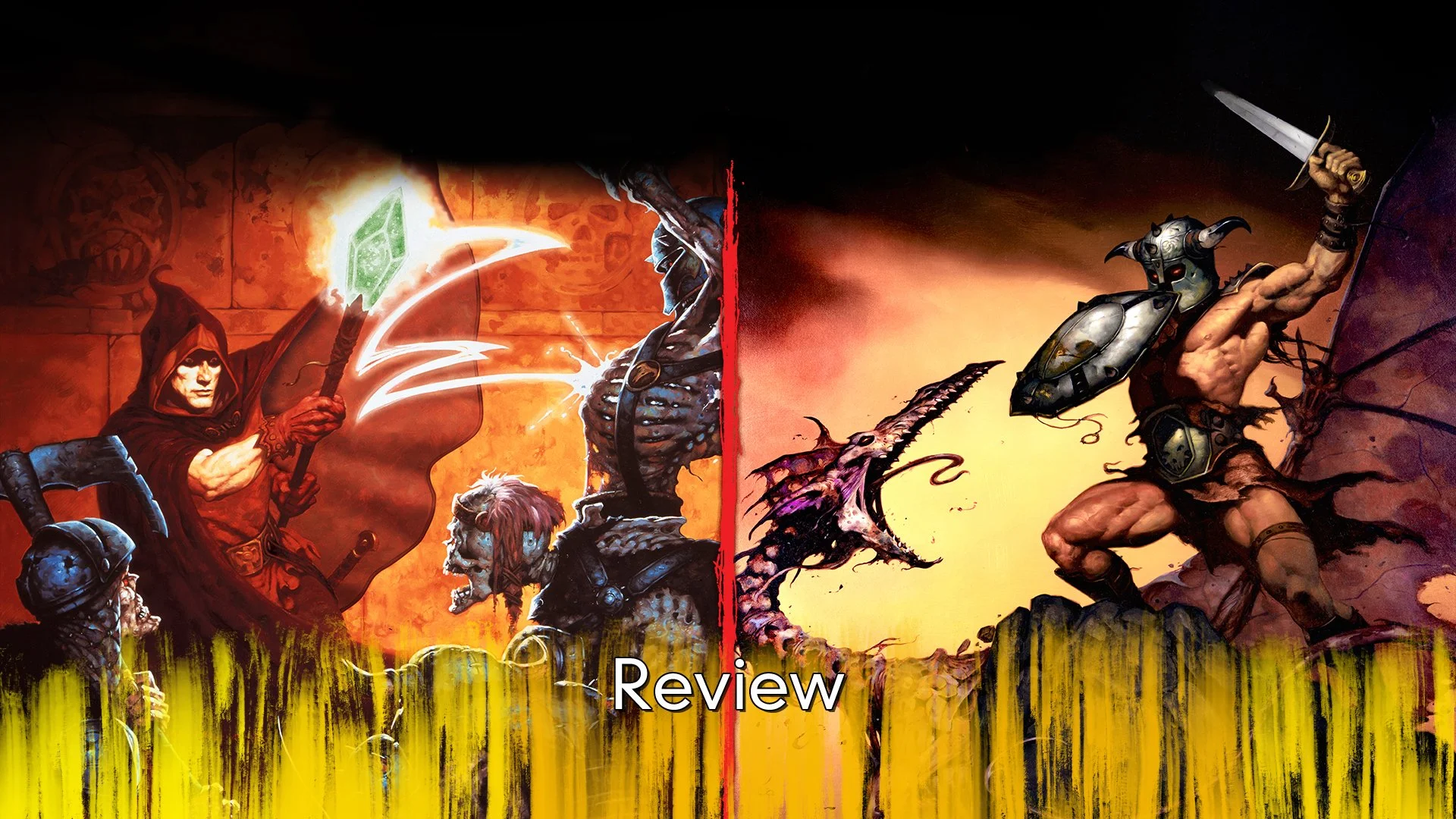Potion Permit - Review

Ever since Stardew Valley released, there have been countless games trying their hand at the style of game, that has the player moving to or returning to a small town. Now while there have been countless farming-based versions of that motif, before and after that game released, it is rare to find a game that embraces the concept but isn’t just another farming game. Potion Permit is one of those rare games, but does the inclusion of potion making, make for a magical experience?
As I said, like most games in this style, Potion Permit starts out with you arriving into the town of Moonbury, a small place that hasn’t had a potioneer on hand for quite a while. On the train towards the town, you meet a fellow potioneer who gives you the advice of don’t mess up, but upon your arrival, it seems your reason for going was quite a bit more urgent than expected. The Mayor’s daughter Rue has fallen sick and the town’s only other medical-adjacent practitioner, the witch doctor, has been unable to cure her. While the Mayor and his wife are willing to give you a chance, Matheo – the witch doctor and countless others in town are not that keen, because in the past someone else that came from the capital caused big harm to the town.
While potion making is at the heart of the game, you won’t be able to just start brewing up whatever you like, there is a subtly to the art of potion making, but also you have to diagnose the illnesses of the townsfolk first. This is the weakest part of the mechanic, as diagnosing just feels like a collection of mini-games and while there is a satisfaction meter on completing them, failure to fill it up all the way never feels like a bad thing. Once you have diagnosed the illness, you will then have to locate ingredients to make the potion and this is where the exploration comes into effect. Foraging for ingredients can be as simple as picking up some mushrooms or as complex as getting dozens of items from a number of biomes. The game does sport a number of biomes and each one contains animals, resources and more that are exclusive to them, so learning which one hosts which vegetation is crucial to ensure you are not wasting time.
Actually brewing the potion is fun, because it isn’t a button pressing mini-game, but rather feels more like a unique version of Tetris. The first cauldron that you have access to can only hold so many ingredients, but over time you can upgrade it, which can let you use more of them, but simply throwing in four items will not make a potion. The game instead prompts you to place in items to fill up a set grid of space, with each ingredient taking up a set amount and within a set shape. This requires you to go through the four categories of ingredients, earth, fire, water and wind, finding the shapes that will fit, whilst staying within the limit of your cauldron. It can be easy at first, but as the potions become more complex and the cauldrons larger, you can spend quite a bit of time trying to work them out.
When you are not diagnosing or brewing potions, you can explore the town around you and speak with the people that call it home and this is perhaps one of the games strongest points, as it has a cast that is fun to interact with. Like most games in the genre, you can spend time getting to know people and build a relationship with them, with the more you do the more you can do, as to increase the level more, a special quest will be required. This is not a random thing that pops up, but rather the game will post a message on the towns bulletin board, giving you the details on how to get started, it is an approach that I can’t recall ever seeing in another game before and makes things feel unique. For those hoping that once you have built up a relationship with that special someone in town, just slow it down as the game does not offer up marriage, you can take some characters out on dates, but that is not the focus of the game, so its exclusion makes sense, at least from that point of view.
For all that is done right in the game, we must talk about the bad, because there are some weird and frustrating elements here. Starting off with the weird, the game has a series of mundane tasks that you can do, in order to earn some extra cash, like sorting mail or stomping grapes and while you would think that they would be fun, you would be wrong. They are ok, as in there is nothing wrong with them, but they are so boring that you will only want to do it a few times before you are done. On the frustrating side, the game does suffer from some performance hiccups every now and then, sometimes its not that long and other times it is. Far and away though, the most annoying problem is that games default controls are a mess, with J being used as the main interaction key and while remapping is possible, it makes no sense. I even connected a controller to the PC to make use of it and the game didn’t even register it was there, except the on-screen prompts were for a controller. I spent far to long attempting to remap the key bindings, to make the game playable and it really is something I shouldn’t have had to do.
On the game’s presentation, there is no denying the games incredible use of pixel art, the world is vibrant and detailed and when you leave the safety of the town and start to explore the wilds, things still look gorgeous. Some character designs are fairly basic, but across the board they are mostly charming and are making full use of the wide range of options in the visual style. Your own character has a decent option of customisation options for you to explore at the start and while they are not as deep as some other games, they are still plentiful. Your adorable little dog that follows you everywhere also looks great, though the animation for when they are walking towards the camera looks just weird.
The games music is charming and fits the visuals very nicely and with the different biomes all having their own music, exploring them can be as much fun audially, as it is gameplay wise. Characters don’t speak with voices, but rather make use of mumble speech and while not the most ideal way of doing it, the quality of it is good enough that it never becomes irksome.
Potion Permit is an interesting game, at its core it has fun with its potion brewing system and medical diagnosis, but beyond that its fairly generic. The game has some interesting characters and a world teeming with things to discover, but when you are strapped for cash or what to grow relationships with people, things become quite monotonous quite quickly. It could be easily seen as a game you play a bit, each day and that fits in well with the daily grind of the game, but that mindset will set in far to easy. If you are a fan of Story of Seasons, Stardew Valley or any other of the countless games in the genre, you will likely enjoy what is being offered here, however if you are someone who wants a little more from your game, you will want to let this one percolate a little longer.
The Score
7.0
Review code provided by PQube
The Pros
+Potion brewing requires some actual thought, in order to adapt to the requirements of the game
+The world is visually stunning, with countless biomes that are ripe to explore, something teleporting helps with greatly
The Cons
-When not brewing potions, the games other tasks are bland and lose interest quickly
-Weird issues with performance are present, but being unable to use a controller was beyond weird, more so given the game actively supports one

